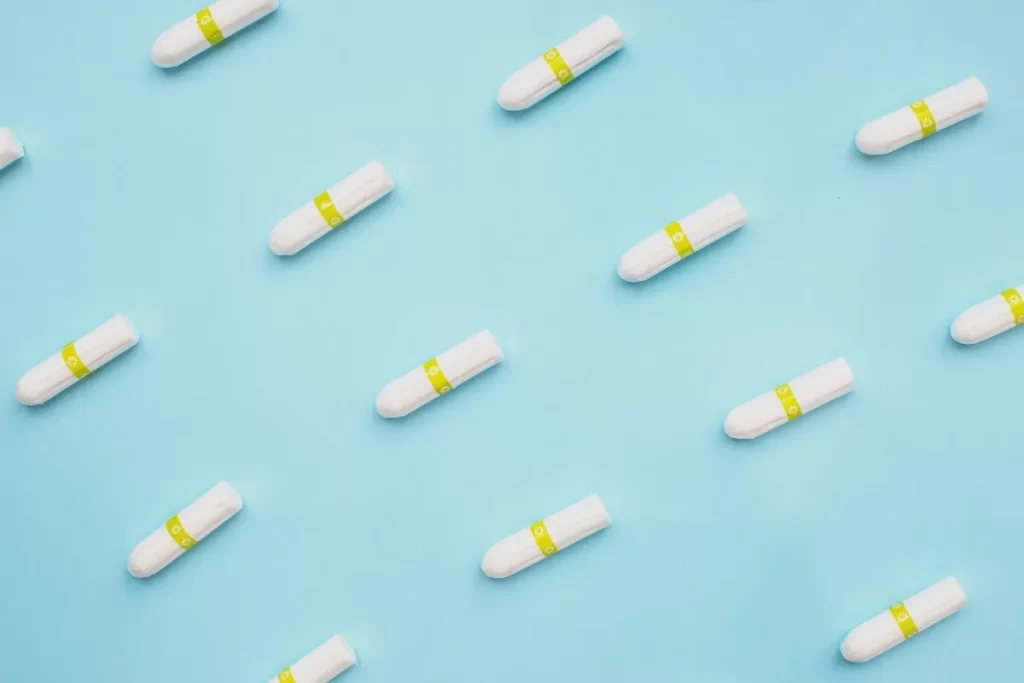
By Dr. Allison Kuipers | Period Poverty Awareness Week is May 22 to May 28. As someone who grew up only whispering about periods in school hallways, it took years of medical training to undo my own shame about menstruation.

As a pediatrician, I counsel and treat adolescents who menstruate every day. It is the unfortunate truth that adolescents still carry that same guilt and embarrassment around discussing periods and how they manage them. They are still using code words for pads, and they are still absolutely habituated to keeping secret their needs related to periods.
The societal stigma that creates these feelings around menstruation are pervasive. That is why I find it particularly important to draw attention to the recent legislative happenings on the topic of periods and the social equity issues surrounding them.
“Period poverty” occurs when financial or educational limitation hinders access to issues related to menstrual hygiene, which includes menstrual products, waste management and proper menstrual education. This may seem like an issue more common in developing countries. But the statistics for period poverty in the United States are striking:
- One in four menstruating people in the U.S. report struggling to afford period products every month.
- Those experiencing period poverty have increased school absenteeism, poor academic performance, more mental health issues and risks to their physical health.
- With inadequate access to menstrual products, people may resort to using rags, cardboard, toilet paper or ration menstrual products by using them for a prolonged period of time, which may result in increased risks to their physical health.
- When a young teen is too embarrassed to talk about their period, they are even less likely to ask for help when they don’t understand or cannot afford a period product.
In April, the S.C. House of Representatives voted to end the sales tax on period products. Right now, the gender-based discriminative luxury sales tax is 6% on tampons, pads and other menstruation items. The House-passed bill currently is in the Senate Finance Committee. But if the state Senate agrees and the measure is signed by Gov. Henry McMaster by next year, South Carolina would become the 24th state to end the ‘pink tax’ and to increase menstrual affordability. Let me remind them both, tampons are essential and having your period is not a luxury. At a time when other states (Florida) are attacking this unique health necessity in adolescence, I am excited to see South Carolina making more thoughtful decisions. But there is still work to be done.
In one U.S. city with similar economic poverty rates to Charleston County, about 20% of female students missed at least one day of school a month because of inadequate supply of menstrual products! More strikingly, about 70% of female students reported depending on teachers and school nurses for supplying menstrual hygiene products. The year following the study, that same state started providing reimbursement to all public school grades 6 through 12 for free menstrual products.
Considering the profound impact on school attendance and academic performance, there is an opportunity to address period poverty in our schools. At present, the Charleston County School District does not stock menstrual products in its schools. Many rely on the charity of nonprofit organizations, such as the Lowcountry Period Project, to supply items to school nurses.
In 2020, the organization PERIOD drew the analogy about period poverty to toilet paper poverty – when you have limited access to toilet paper, you cannot afford toilet paper or you do not know how to use toilet paper, suddenly a very normal bodily function faces a lot of unnecessary challenges. The group put this to the test when it organized a simulation in which male restrooms required coins to use toilet paper in stalls, mimicking the fee-based dispensing machines of women’s restrooms for menstrual hygiene products. I think you can draw conclusions about how well that went.
Menstruation is a normal healthy bodily function that deserves equal access. Pediatricians address periods every day, but we cannot fix the problem of period poverty alone. The support of community leadership would make all the difference.
I ask our senators to vote to end the luxury sales tax on period products. A vote yes would be one step closer in ending the indignity of period poverty that too many of our Charleston citizens face. For our school district leaders, start advocating for period product funding in schools to address our adolescents’ needs.
No student should be distracted from education because of lack of access to period supplies. Let’s keep this positive period of legislative momentum going.
Please consider helping our menstruating students by donating to the Lowcountry Period Project.
Dr. Allison Kuipers is a pediatric resident at the Medical University of South Carolina.















 We Can Do Better, South Carolina!
We Can Do Better, South Carolina!